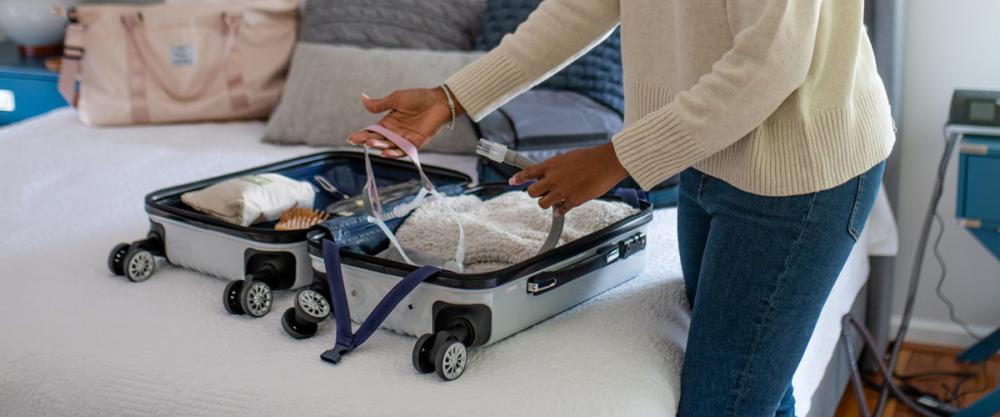Obstructive sleep apnea (OSA) can be a difficult condition to manage on your own. Thankfully, internet forums and support groups can help you find a community of other people living with the condition. You can use these groups to connect, ask questions, and share your experience at any time of day or night. They are free and easy to join. In nearly all cases, you can simply create an account to chat about sleep apnea with people who understand sleep apnea.
The Benefits of Joining a Group
It can be a great way to get support. You’ll be able to talk to other people managing sleep apnea and can get tips and advice from the community. When you join a group or forum, you can:
- Get practical advice from people who’ve faced the same challenges as you
- Hear success stories from people who have reduced their symptoms
- Discuss and compare your symptoms with others
- Get tips and hacks for better sleep
- Read peoples’ real experiences with sleep studies, OSA treatments, and more
- Talk to other members who use continuous positive airway pressure (CPAP) machines and other OSA treatment equipment
- Learn what to expect from your first time using CPAP therapy and other common treatments
- Get fast answers to questions about symptoms, treatment, and more
- Learn about the difference between obstructive and central sleep apnea
- Learn about other sleep disorders and their symptoms
- Find recommendations for a local sleep specialist
It's important to keep in mind that the advice and discussions found on sleep apnea forums support groups aren’t a substitute for medical advice. If you’re having serious symptoms or difficulties with treatment,contact a healthcare professional.
The Best Sleep Apnea Forums
There are a variety of options you can check out. You’ll find forums hosted by sleep apnea websites as well as forums hosted on familiar social media platforms like Facebook and Reddit. Some great groups and forums to check out include:
AWAKE Sleep Health — AWAKE is a well-known Facebook support group where members can discuss symptoms, treatment, and resources. They also have members and moderators all across the country who host live gatherings.
Sleep Apnea Support — A closed Facebook group that is used by people all over the world to ask questions and share stories.
ApneaBoard.com — Apnea board is a place to find success stories, discuss treatment and product options.
My Apnea Forum — An online space where you can connect with other people managing sleep apnea, as well as doctors, sleep apnea researchers, and other professionals.
CPAPtalk.com — CPAP talk is a forum where you can ask questions about CPAP machines, CPAP masks, and other treatment equipment. You can also share experiences, tips, product reviews, and success stories with fellow CPAP users.
Reddit Sleep Apnea Subreddit — This community lets you talk to people around the globe who are managing sleep apnea to get advice and support.
Supportgroups.com — Supportgroups.com is an online resource that hosts online groups for people facing a variety of conditions, including sleep disorders like OSA
Helpful Tips
Make sure any forum you find is active — You can typically browse the main page to see how recent the latest post was, and how often new posts and comments are made.
Make sure a forum fits your needs before joining — Not every forum is suited for everyone with sleep apnea. Be sure to read topics and threads before you join any forum. They’ll give you a good idea of what’s normally discussed, and if it will be useful to you.
Join more than one forum or group — You don’t need to limit yourself to one forum or support group. You can join a few to give yourself the most access to advice, community, and resources. It may take a few tries to find the right fit.
Search the forum for discussions that might help you — Before you post your first question, it can help to search the forum to see if other users have asked similar questions. Searching for previous discussions can give you a wealth of information. You might not even need to post your own question after reading previous posts.
Write a clear and simple post — If you want to ask a question or post a discussion topic, it’s best to keep it simple. You might have a lot to ask and say, but other users might not want to read a long post that covers many topics. You’re more likely to get answers if you stick to one question or area of discussion. If you still have questions, make them a separate post.
Look up any forum-specific abbreviations and acronyms — Many forums have acronyms or abbreviations for commonly discussed treatments, symptoms, and other topics. Knowing what these terms mean will help you understand discussions on the forum. In most cases, there the forum or group will have a Frequently Asked Question or New Members section that will explain abbreviations and acronyms, along with rules and other important forum-specific information.
Follow, save, or set alerts for helpful topics and posts — Most forums have a function that will let you follow the topics and posts that are most useful to you. You can often set alerts for saved posts and topics so that you’ll be notified when new discussions and replies are made.
Follow internet courtesy rules — Behaviors such as engaging in arguments with other users, using offensive language, or breaking forum rules won’t help you find support. In fact, it will result in being banned from most forums. If you have a concern about another user or a forum rule, message a group leader, forum moderator or administrator.
Follow internet privacy and safety rules — Take care to avoid disclosing information such as your full name, address, phone number, or anything else you want to keep private.
Be helpful — When you’re able, it’s a great idea to provide your own advice and support to others. Not only is this a helpful and kind thing to do, but it’s also a good way to build community in the forum or group.












